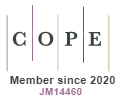Remote dialogical teacher education: Challenges and learning arising from the times of COVID-19 pandemic
DOI:
https://doi.org/10.5585/52.2025.26607Keywords:
remote learning, teacher education, dialogical pedagogyAbstract
The impacts of the COVID-19 pandemic on students' affective and cognitive dimensions were significant at all levels of education. However, even during the period of social confinement, initiatives were created to mitigate such impacts suffered by the student body. The objective of this research focused whether and how, in the context of remote teaching due to the pandemic, a dialogic approach to teacher education can help reduce student mental suffering and improve the quality of their learning. A case study was carried out in a course that brought together undergraduate students and education professionals in different education programs in Brazil. Data were produced through online questionnaire answered by seventy participants. The responses were analysed quantitatively and qualitatively. The main results were that the dialogical approach based on Freire, Habermas and Flecha was a crucial factor in alleviating psychological suffering and for the quality of learning.
Downloads
References
AUBERT, A., FLECHA, A., GARCÍA, C., FLECHA, R., & RACIONERO, S. 2016. Aprendizagem dialógica na sociedade da informação. São Carlos: EdUFSCar.
BOGDAN, R. & BIKILIN, S. 1994. Investigação qualitative em Educação. Porto: Porto Editora.
BRASIL. 2020. Ministério da Educação. Portaria de número 544, de 16 de junho de 2020. Institui o Ensino Remoto Emergencial nas Instituções Federais de Ensino Superior.
DAIMER, S., MIHATSCH, L., NEUFELD, S. A.S., MURRAY, G. K., & KNOLLE, F. 2022. Investigating the relationship of COVID-19 related stress and media consumption with schizotypy, depression, and anxiety in cross-sectional surveys repeated throughout the pandemic in Germany and the UK. eLife, 11, 1-32. https://doi.org/10.7554/eLife.75893
DOGAN-SANDER, E., KOHLS, E., BALDOFSKI, S., & RUMMEL-KLUGE, C. 2021. More depressive symtoms, alcohol and drug consumption: increase in mental health symtoms among university students after one year of the COVID-19 pandemic. Frontiers in Psychiatry, 12, 1-13. https://doi.org/10.3389/fpsyt.2021.790974
FLECHA, R. 1997. Compartiendo Palabras: el aprendizaje de las personas adultas a través del diálogo. Paidós.
FREIRE, P. 1997. Pedagogia do oprimido. Rio de Janeiro: Paz e Terra, 30ª. Edição.
FREIRE, P. 1992. Pedagogia da Esperança: um reencontro com a pedagogia do oprimido. São Paulo: Paz e Terra, 11ª. Edição.
GÓMEZ, J.; LATORRE, A.; SÁNCHEZ, M. & FLECHA, R. 2006. Metodología comunicativa crítica. Barcelona: El Roure.
HABERMAS, J. 1984. Mudança estrutural da esfera pública. Rio de Janeiro: Tempo brasileiro.
HABERMAS, J. 2012. Teoria do agir comunicativo: racionalidade da ação e racionalização social. São Paulo: WMF.
JOANPERE-FORASTER, M., EGETENMEYER, R., SOLER-GALLART, M., LÓPEZ, A., & FLECHA, R. 2023. Dialogic Teaching beyond Words. Multidisciplinary Journal of Educational Research,13(3), pp 313 –324. http://dx.doi.org/10.17583/remie.12867
KANDEL, E.R. 2009. Em busca da memória: o nascimento de uma nova ciência da mente. São Paulo: Companhia das Letras.
KOHLS, E., BALDOFSKI, S., MOELLER, R., KELMM, S.L., & RUMMEL-KLUGE, C. 2021. Mental health,social and emotional well-being, and perceived burdens of university students during COVID-19 pandemic lockdown in Germany. Frontiers in Psychiatry, April 2021, 12, 1-11. https://doi.org/10.3389/fpsyt.2021.643957
MAIA, B.R., DIAS, P.C. 2020. Ansiedade, depressão e estresse em estudantes universitários: o impacto da COVID-19. Estudos de Psicologia, 37, 1-8. https://doi.org/10.1590/1982-0275202037e200067
OLIVEIRA, E.N.; VASCONCELOS, M.I.O.; ALMEIDA, P.C., PEREIRA, P.J.A.; LINHARES, M.S.C.; XIMENES NETO, F.R.G. & ARAGÃO, J.M.N. 2022. Covid-19: repercussões na saúde mental de estudantes do ensino superior. Saúde em Debate. Rio De Janeiro, 46 (1), 206-220. https://doi.org/10.1590/0103-11042022E114
PLAKHOTNIK, M.S.; VOLKOVA, N.V., JIANG, C., YAHIAOUI, D., PHEIFFER, G., MCKAY, K., NEWMAN, S., & REISSIG-THUST, S. 2021. The perceived impacto of COVI-19 on student well-being and the mediating role of the university support: evidence from France, Germany, Russia, and the UK. Frontiers in Psychology, 12, 1-13. https://doi.org/10.3389/fpsyg.2021.642689
STAKE, R. E. 2013. Estudos de caso em pesquisa e avaliação educacional. Educação e seleção, 7, 5-14, 2013. Disponível em: http://www.fcc.org.br/pesquisa/publicacoes/es/artigos/55.pdf
VILLAREJO-CARBALLIDO, B.; PULIDO, C.M.; DE BOTTON, L.; SERRADELL, O. 2019. Dialogic Model of Prevention and Resolution of Conflicts: Evidence of the Success of Cyberbullying Prevention in a Primary School in Catalonia. Int. J. Environ. Res. Public Health, 16, 918. https://doi.org/10.3390/ijerph16060918
Downloads
Published
How to Cite
Issue
Section
License
Copyright (c) 2025 Roseli Rodrigues de Mello, Anselmo João Calzolari Neto, Antônio Álvaro Soares Zuin

This work is licensed under a Creative Commons Attribution-NonCommercial-ShareAlike 4.0 International License.
- Abstract 116
- PDF (Português (Brasil)) 46






